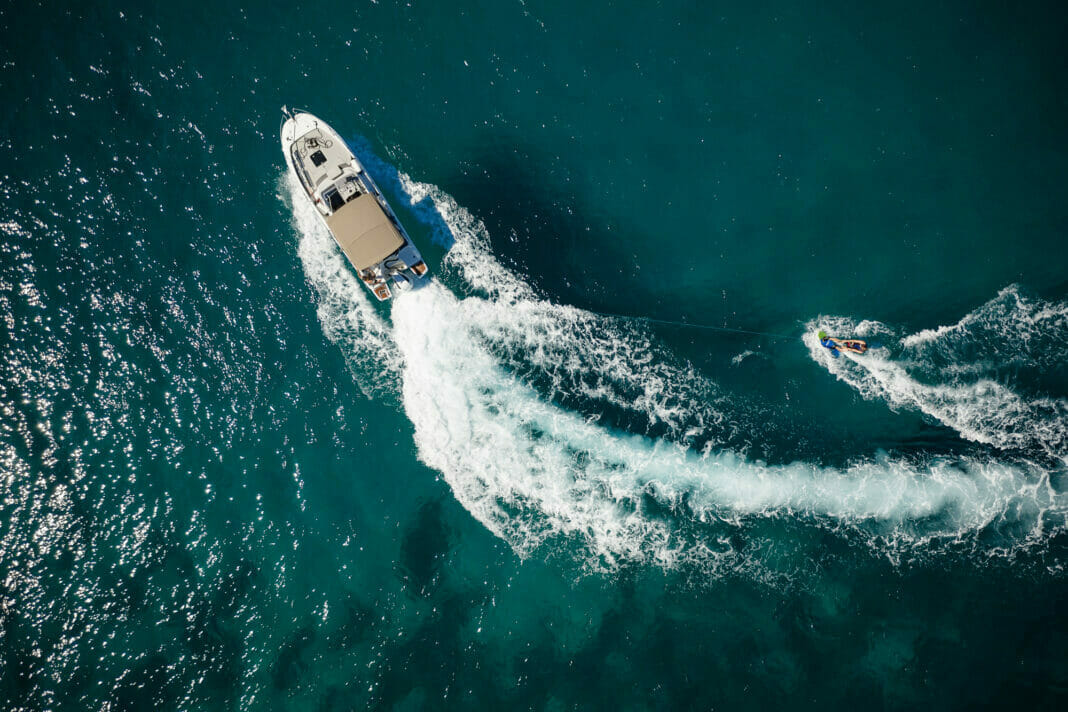Water activities such as boating can be a great way to enjoy the water, but only a few people know all that is involved in staying safe. Even experienced boaters need to be reminded of safety basics. To ensure you have a fun and safe time, here are our top 10 boating safety tips that you should always keep in mind.
- Have All The Proper Safety Gear
Ensure your boat is adequately equipped with all required safety gear before setting out. Everyone going on a boating trip should make sure they have lifejackets, fire extinguishers, flares, a whistle, or air horn in case of emergencies, and first aid kits. This essential equipment is necessary for any unexpected situations that may arise, such as storms with high winds or if someone has fallen overboard. - Check The Weather Forecast
Always check the weather before heading out on the water. Knowing what to expect ahead of time allows you to prepare accordingly and alter your plans if necessary. High winds, rain, or fog could reduce visibility. If conditions are unfavorable, it’s best to stay dockside until they improve. - Have A Float Plan
Having a float plan before heading out on the water is also a good idea. A float plan is a plan of where you will be going and when you expect to return. This information can be helpful in case of an emergency. - Know Your Vessel
Knowing your boat before heading out on the water is essential for safety, handling, and comfort. Knowing your boating vessel means that you’re familiar with its capabilities and limitations. This will ensure that you are not in over your head when it comes to where you can take it. That could involve understanding what the boat’s speed and weight limits are, as well as its range. Additionally, understanding how to shift the engine, and how to operate its various systems. - Don’t Overload Your Boat
Be sure not to overload your boat, as this can make it unstable and challenging to maneuver. Make sure everyone on board has enough space to sit comfortably without being cramped up against each other or any gear on board. - Inform Others Of Your Plans
Let someone know where you plan to go and when you will return before leaving shore. This helps friends and family know where you are if something goes wrong or if you don’t make it back in time for dinner. - Stay Sober
It is also important to stay sober when boating. Alcohol and drugs can impair your judgment and coordination, making it more difficult to operate a boat safely. In addition, if you are taking medication, check with your doctor before operating a boat, as some medications can also cause impairment. - Be Mindful Of Speed Limits
The navigation of boats can be much more challenging than driving on roads and highways. This is why it’s even more important to be mindful of speed limits while boating. Speeding boats pose serious dangers that go beyond costing you a ticket, hitting waves or wakes too quickly or making sharp turns at high speed can cause boats to tip or capsize, leading to severe injury or even death. - Be Prepared For Emergencies
Knowing how to operate emergency equipment such as radios, flares, and distress signals if necessary is essential preparation. It is recommended that boaters establish a plan before setting out and equip themselves with the appropriate supplies necessary for their trip. This will enable you to remain safe and aware of any emergency. Having an emergency kit in tow, including items like flares and other floats, will further enhance a boater’s ability to respond appropriately and effectively in an unforeseen disaster. - Take A Boating Safety Course
Finally, one of the best ways to improve your safety while boating is to take a boating safety course. Learning about boat handling, rules of the road, and emergency response tactics could save your life and the lives of your passengers. In addition to providing you with indispensable knowledge about safely handling a vessel, it can also open up several doors to additional recreational activities you may not have previously considered.
Whether you are a seasoned boater or just embarking on your first boating adventure, following these simple guidelines can help ensure your next trip is enjoyable. And, most importantly, safe for everyone involved. So, hop onboard and prepare for fun on the sea or lake!


